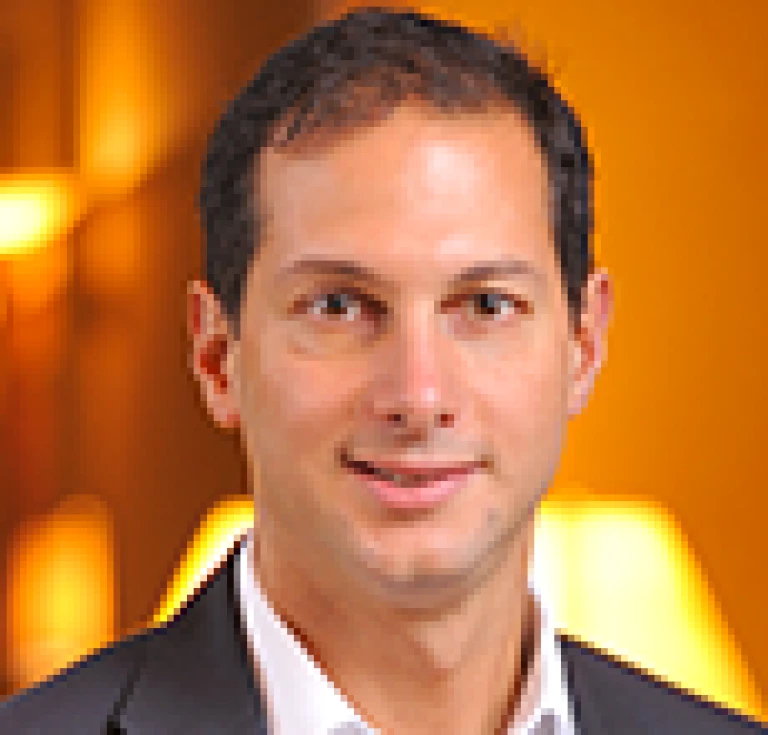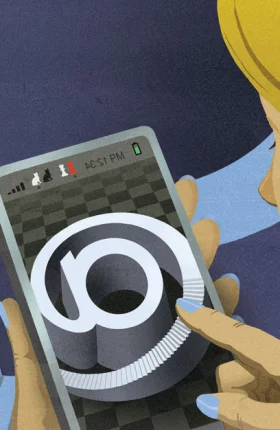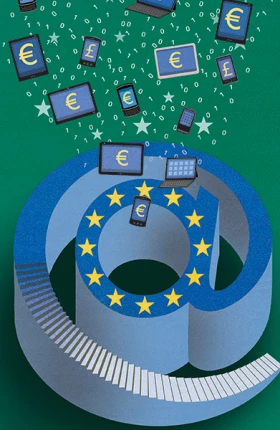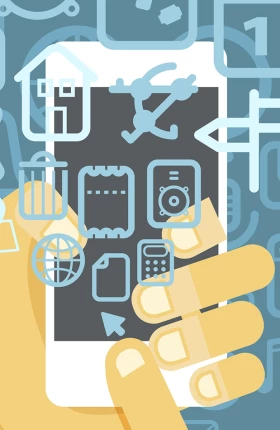During the dot-com era, “The Internet changes everything” was a popular refrain. The line was not wrong—just premature. Today, the Internet finally is changing everything.
The way we learn, form friendships, communicate, and do business has been permanently altered. Major industries, such as traditional media, have been disrupted, but all industries have felt the effects of big data, Internet connectivity, and social media. The Internet does not just change everything. It is everywhere, too. Asia and now Africa are quickly catching up with the rest of the world in terms of connectivity.
To understand what has changed and how businesses can respond, The Boston Consulting Group hosted a breakfast panel called “Digital Game Changers” at the World Economic Forum’s annual meeting in Davos, Switzerland. The august group of panelists included the following:
- Marc Benioff, the founder of Salesforce.com, a leader in enterprise cloud computing
- Matt Brittin, Google vice president of Northern and Central Europe
- Arianna Huffington of The Huffington Post
- Steve Mollenkopf, president of Qualcomm, an innovator in wireless and next-generation technologies
- Jimmy Wales, founder of Wikipedia
The quintet discussed the disruptive force of the Internet on industry economics and the transformative effect of connectivity on organizations and customer interactions. They also ranged over the rapid entry of emerging markets into the connected world, the delivery of mobile health care, the dangers of cyber attacks—and the need to unplug from it all from time to time. In short, the panelists knew how to pack a punch.
Rich Lesser, BCG’s president and chief executive officer, introduced the panelists, and Paul Zwillenberg, a BCG partner and managing director, served as moderator. Excerpts follow.


The Internet clearly is changing the way consumers engage with the world—with companies, with brands. What does this mean for businesses?

The question is not whether your employees and customers and partners are connected. They obviously are. The real question is whether your company is connected to them. This is the great transformation, the great bridge, the great divide, and the great opportunity. This is the renaissance. This is the most exciting, most dramatic, most revealing thing we have ever seen in our industry. All of our companies have to shift and provide this ability to connect with our customer in a whole new way.
Zwillenberg: What about connecting with employees? What is the new contract with employees
Benioff: There is a dramatic shift toward a greater level of openness, transparency, and collaboration. The traditional organizational chart is essentially dead, which is scary for managers and leaders of large companies.
Individuals are more powerful than ever before. An employee can bring down a company but also bring up a company. We need to empower, enable, and embrace those super individuals in your company—the people who really get the work done.
Zwillenberg: Arianna, your company is transforming the news industry. Is print dead?

There is a convergence underway. We won a Pulitzer Prize last year. We do major investigations—a 15-part series on poverty in America, a ten-part series on returning veterans—on topics that are traditionally associated with big newspapers. And at the same time, established newspapers are moving into the digital space. When we launched The Huffington Post, they were laughing at the idea of blogging, and now they all insist that their reporters blog, tweet, and use social media.
Zwillenberg: We have seen the rise of citizen journalists who do not always separate fact from fiction. Should we be worried?
Huffington: I do not think anyone can assume that traditional newspapers are always devoid of this confusion between fact and fiction. Remember The New York Times’s flawed coverage about the weapons of mass destruction prior to the start of the Iraqi war?
Citizen journalism—or, as we are now calling it, “open reporting”—is something that we use at The Huffington Post. We have a very engaged community. We just reached over 220 million comments. It is amazing how much wisdom and amazing information comes from the crowd. When the government releases data, we get accountants, technicians, engineers analyzing it.
We still have not come to terms with this self-expression. The willingness to get involved—spend time and energy without being compensated financially—has become like a new source of entertainment. There are still many people who wonder, “Why are people updating Wikipedia for free? Why are you blogging on The Huffington Post for free?” Nobody ever asks, “Why are people sitting on their couches watching bad TV for free for four hours?”
Zwillenberg: Jimmy, how does Wikipedia ensure information accuracy?

Zwillenberg: Are people in China, India, the rest of Asia, and Latin America using the Internet in different ways? Are they using Wikipedia in different ways than you see in the developed world?
Wales: It is surprising how similar it actually is all around the world. Many of the differences are actually hidden similarities. If you see who is reading the entry on Nick Clegg, the British deputy prime minister, it is mainly people in the U.K., just as the people who are reading about Joe Biden are mainly in the U.S. It’s mainly a local story.
One other point: I have an unlocked Android phone that a friend bought for me in Kenya for $50 on the street. They sell hundreds of thousands of these. This is incredible. It is transformative and coming faster than people realize. There is a massive cultural shift as people from India, China, and Africa are coming online at decent speeds at prices they can afford. That is a really important development.
Zwillenberg: Steve, you have a front-row seat to watch the rise of mobile. Where are we going?

In mature markets, two big trends are apparent. First, there is a huge imbalance today between the demand for data in your pocket and what we can actually supply. People would like to have an enormous amount of video and capability. In order to deliver that in the future, we are going to see a very different network architecture. Networks will become very small and very distributed—almost to the point where there will be one base station per person. In order to do that, we will need to bring the cost way down. There’ll be a lot of business innovation around that technology.
Second, the phone has the ability not just to interact with your environment but to predict what you need. Today, the capabilities that exist in a mobile device are really not used that much. In the future, you are going to see a world with a lot of sensors that are interacting with a lot of things, both people and objects. [A mobile device] is going to be able to predict what you need and provide what we call a “digital sixth sense.”
Zwillenberg: Matt, do you see the Internet driving economic growth?

Businesses with a website that are doing online marketing are growing many times faster than those not. The Internet has become an incredible sort of engine room for growth. It is a huge opportunity for business. And yet most large businesses are really struggling.
What you need to do is listen to your consumers, as Marc [Benioff] was saying. You need to use the Web to be listening and looking at where people are and what they are doing. That is a very different set of skills from those that are required in a command-and-control organization. All the dynamics we have been talking about here present a big threat to traditional businesses but also a massive opportunity to engage with those billions of Internet users.
Benioff: Burberry just opened this great new flagship store in downtown London. The store is part of a multichannel effort to convey their brand consistently on mobile devices, on the Web, and in their stores. All new Burberry products in the store are embedded with RFID chips. Soon, when you walk into that store, Burberry will know who you are and what you have bought in the past. When you walk in front of the mirror with a product like a new handbag, you will see how it looks with products you already own. Remember the movie Minority Report, when Tom Cruise is trying to escape and goes into a Gap store? A hologram welcomes him into the store by name and asks about a recent purchase. That’s not the future. That is now. That type of experience is not for everybody. You will be able to opt in or out, but if you opt out you are going to miss the opportunity to have all the fun.
The cool thing about the next generation of mobile devices is that they are fundamentally a dashboard to my whole life. The gain for large enterprises is that their customers will be connected to them all the time.
Zwillenberg: Jimmy, how does an institution like Wikipedia really tap into this mass connectivity?
Wales: The original vision statement for Wikipedia was for us all to imagine a world in which every single person on the planet was given free access to the sum of all human knowledge. That is a really big vision that excites people. If we started with a small vision, it might not have been as inspiring. When people are contributing to Wikipedia, they are having fun. They are meeting smart people. They also feel useful and productive. People know that they are benefiting lots of people. We have never had that much trouble finding people who are excited about that vision.
I think it is interesting to notice that different people have different kinds of motives. Some people will blog for free for The Huffington Post because it gives them a platform to get their ideas out. At Wikipedia, the authors generally are not widely known. They do not get their picture on the site. But they are known to other contributors.
Question from the audience: There has been a lot of news in the U.K. about the High Street dying. I think e-commerce represents maybe 15 percent of sales now. I come from China where you can buy anything on Taobao. What is going to happen to shops? Are they going to die?
Brittin: I think there is a shift, and traditional retailers have to become multichannel. Customers who shop in more than one channel are more valuable, more loyal, and more frequent. A physical store allows you to do stuff you cannot do online: service, advice, quality, and reassurance.
Six or seven years ago, online retailers came out on top of any shopping query on Google. Now, five or six of the top-ten search results are traditional brand names in almost any category. Consumers like the traditional brand experience in addition to the online experience.
Question from the audience: With this massive explosion of data, can data security and data protection keep up?
Mollenkopf: You cannot hold back the ocean with a broom. But people will eventually figure out how to get that done. There are a lot of people working on mobile security, and I do not see it as a long-term barrier. It will get solved eventually.
Wales: “Solved” might be too strong a word. I think there will always be security breaches and failures and noise around the edges.
Zwillenberg: On that note, I think we have reached the finish line. Thank you, panelists.





